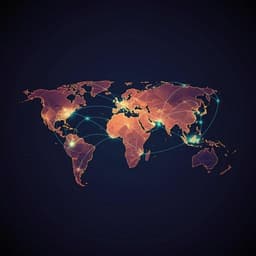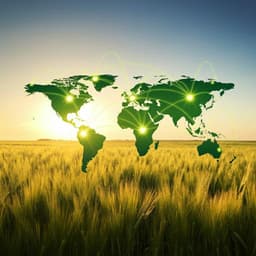
Earth Sciences
Zooplankton grazing of microplastic can accelerate global loss of ocean oxygen
K. Kvale, A. E. F. Prowe, et al.
Dive into groundbreaking research by K. Kvale and colleagues, revealing how zooplankton's munching on microplastics might be amplifying the ocean's deoxygenation crisis. Could our oceans be suffocating not only from warming but also from plastic pollution? This study uncovers a startling link that could change our understanding of marine ecosystems.
Related Publications
Explore these studies to deepen your understanding of the subject.







